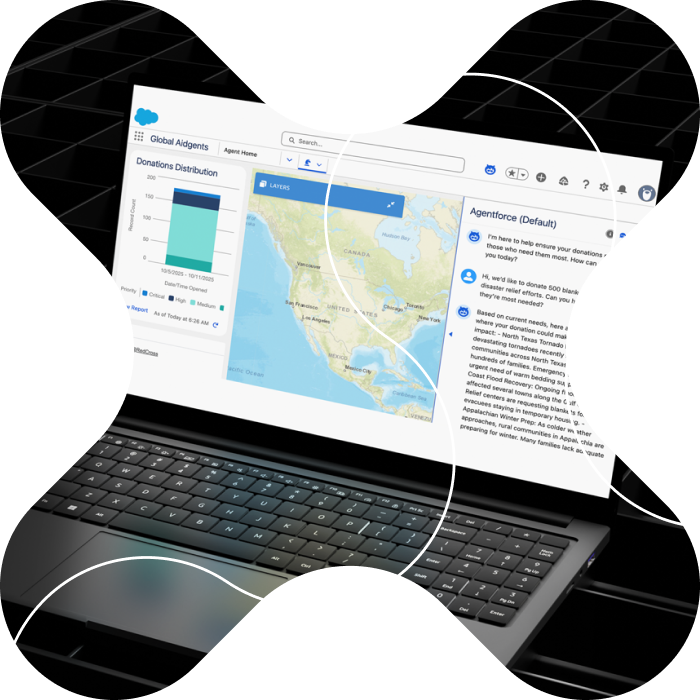In today’s highly technological world, more and more people are learning programming languages. They are recognizing that computer programming applies to a wide range of careers, not just software development — from UX design to web development to data analysis to digital marketing. They also know they can help with personal projects, too.We are living in an increasingly digital landscape, and perhaps that’s why so many people are learning coding languages. But with so many languages and applications for them, how do you know which ones to focus on first? Here are four languages you should absolutely add to your repertoire in 2022 — and keep them on hand for years to come.
The Top 4 programming languages to learn in 2022
1. JavaScript
Stack Overflow’s 2021 developer survey ranks JavaScript as the no. 1 most commonly used programming language. That’s no surprise, given the many uses of the language, which was traditionally used for front-end website development, particularly for creating interactive, dynamic elements. Today, however, programmers are leveraging JavaScript for additional purposes, including back-end development and mobile applications. In fact, there are numerous ways you can use the language.JavaScript is a high-level language that is not terribly difficult to learn. Given how prolific it is, it’s certainly an important skill to learn — many employers across several industries will expect employees to have at least a working knowledge of the language, especially if they manipulate front-end content for websites, applications, and more.
2. Python
Python has been steadily gaining popularity for several years. It tops Stack Overflow’s list of “Most wanted” languages, with 19.04% of respondents saying they were hoping to learn the Python language, although they had not yet developed with it.Programming in Python is very straightforward — the language is readable and writable, with a simple syntax. It’s made even more accessible by a huge number of libraries and frameworks, which facilitate easier development. And the uses are endless. People use it for web development, applications, machine learning, and much more.
3. Rust
Rust has many claims to fame, and perhaps that’s why it tops the Stack Overflow survey as developers’ “Most loved” programming language. Its performance is phenomenal — coders laud the speed of the language — and highly reliable. Another of its strengths is its memory efficiency and safety.Rust is a functional, general-purpose language that offers excellent documentation. It’s very productive, too. A newer language, it is often compared to C++, but it has some additional advantages, including the aforementioned memory safety.
4. C
Ranked no. 2 in the TIOBE Programming Community index, an indicator of the popularity of different programming languages, as of April 2022, C rounds out our list of languages to learn this year. A general-purpose language developed in the 1970s to write UNIX, today, C is used for products like operating systems and applications. It’s easy to learn and highly efficient.C is famous in its own right, but it is also notable for being the ancestor of the C family, which includes C# and the C++ programming languages, to name just a few.
How to learn programming languages
No longer do you need a fancy degree in computer science to become a skilled programmer. While that is still the path some software developers take, others pursue less traditional, often more cost-effective, and quicker routes. Here are just a few of the ways you can build your skills.
Take courses.
You’ve almost certainly heard about coding boot camps. These popular courses cram a huge amount of material into a short period of time, allowing them to gain programming skills quickly, for a far lower cost than the price of earning a bachelor’s degree. Often, graduates of these boot camps have successful outcomes, landing jobs in the programming world within months of completion.There are also shorter courses, including ones focused on specific languages, skills, or products, available through low-cost or free platforms like Codecademy.
Play around.
But you don’t need to take a formal course to learn the intricacies of coding. Learning by doing is often the best approach and one that certainly lends itself to the world of programming. For example, playing around with the backend of websites and apps and investigating the source code, will help you better understand how they were built.While simply reading the existing code won’t make you an expert programmer, it can provide a solid foundation to build upon. Try tinkering with it, too, to give you a basis on which to create your own code.
Tap into communities and resources.
The internet offers a wealth of information for coders of all levels. Today there are plenty of communities you can tap into to ask questions, bounce ideas off of, troubleshoot, and find resources. Some of the most popular general programming communities are:• Stack Overflow• GitHub• Hackernoon• Code Project• Developers Forum• RedditThere are also smaller communities for people learning specific languages, delving into niches and specialties like gaming, and much more. These communities often have extensive resources like tutorials, guides, articles, podcasts, and other tools to help you learn and hone your programming skills.Don’t forget to contribute to open source projects, respond to questions, and help out others yourself — paying it forward is the best way to build your own reputation as a professional.
Work on projects.
Just get started! Once you have built a solid foundation, tinkered with code, unpacked resources, and so on, it’s time to experiment with your own, unique projects. Apply the principles you have learned to your own work, whether it’s your personal website, a simple game, an application, a portfolio, or something else entirely. You don’t have to show your work to anyone else — this is a way for you to practice and become accustomed to your new skills — but who knows? You may just fall in love with the finished product and want to make it publicOf course, you may well get stuck — that is only natural — but remember that there are plenty of tools available to help you get UNstuck, such as communities of fellow developers. Don’t be afraid to ask plenty of questions — and don’t be intimidated. Everyone starts somewhere, and everyone was a beginner at one point or another. As you gain experience and continue to practice, you will be able to build increasingly complex projects and solve problems yourself — even support others in their projects. This, after all, is how communities grow and thrive.Programming, like any skill, is a journey. You are constantly honing and improving it, as well as learning new languages, hacks, and competencies. But it’s one that will serve you well as you grow in both your career and personal life.These are just a handful of the many languages that can help you get started and progress in your programming journey. Things are constantly changing and evolving, and more and more languages become relevant every day. Keep abreast of the news and goings-on in the programming space so you remain knowledgeable and up to date on the community.Remember to keep learning, practicing, and flexing your skills, too. This is how you will become even better as a coder and a professional and continue to create amazing things.





